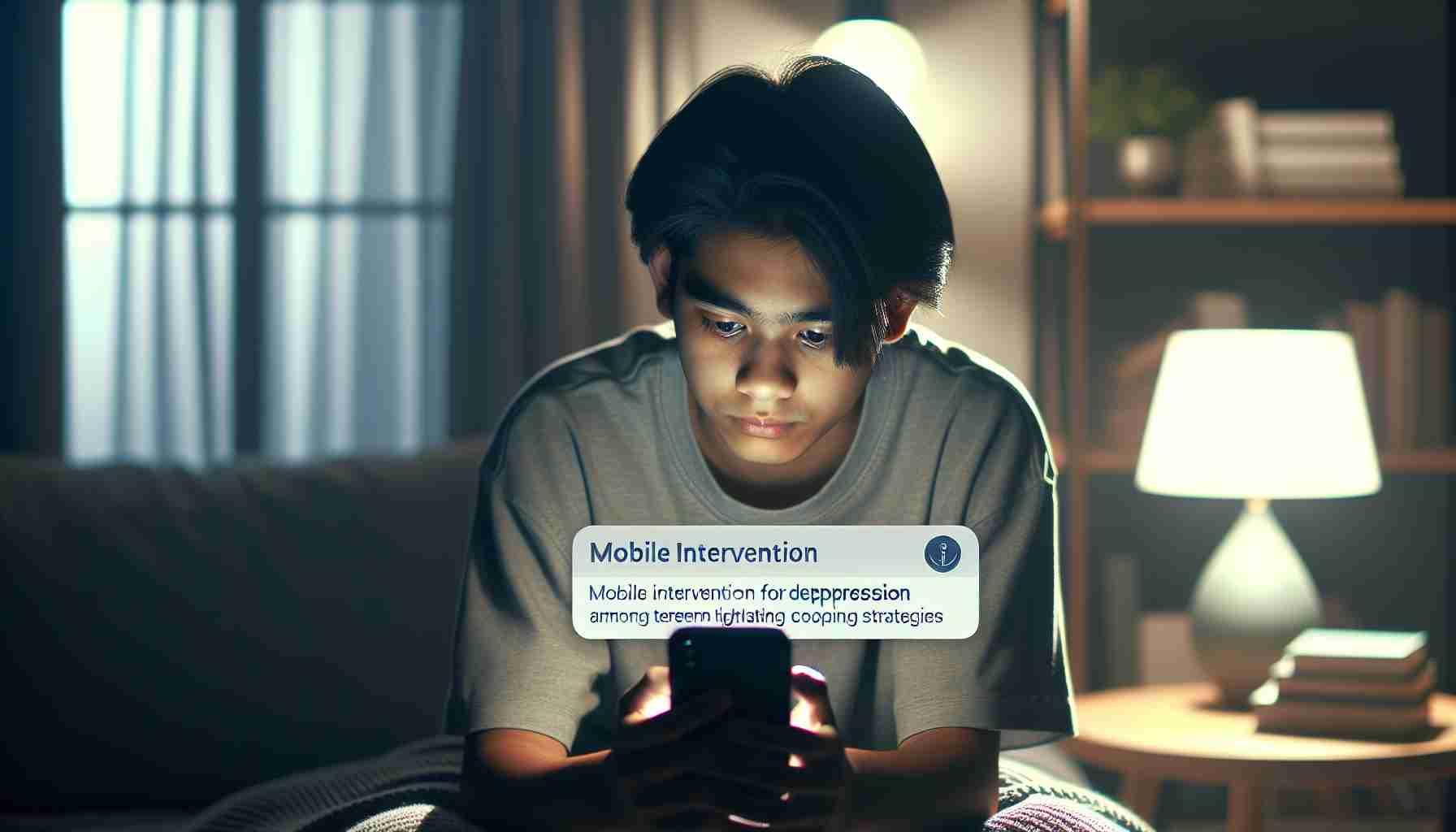Increasing Depression Rates Among Adolescents Addressed by Innovative App
In recent years, mental health professionals have observed a worrying uptick in depression among adolescents, with around 20 percent of teens reportedly experiencing clinical depression within the last year. This troubling trend has seen a particular rise in teenage girls, who represent double the number of cases compared to boys.
Scientific Collaboration Offers Hope Through Technology
Among those affected is 16-year-old Avary Whitehead, whose interest in hobbies dwindled amidst personal challenges and the impact of a global pandemic. Avary has suffered from rumination, which involves persistent negative thoughts about one’s past.
Researchers, including Christian Webb from McLean Hospital and Harvard Medical School, are tirelessly working to combat this pervasive symptom. Recognizing the challenges many families face in accessing child therapists, Webb’s team sought technological solutions, specifically, a smartphone mindfulness app called Headspace that’s designed to anchor teens in the present moment through breathing exercises and other mindfulness techniques.
A Ray of Light with Mindful Breathing
The app encourages users to concentrate on their breath, aligning them with the present and mitigating the pull of distressing thoughts about the past. Preliminary results from the NIH-funded research point to the app’s effectiveness, with older teens and those who ruminate extensively reaping the most significant benefits. Avary’s experience is a testament to this progress, having witnessed a positive transformation in his mood and the return to his sports activities, armed with new coping skills.
Opportunity for More Teens to Participate in Study
Continuing their quest for insights, the research team is inviting more teenagers between the ages of 13 and 19 to join the study. Interested parties can find additional information on the study’s official website.
Key Challenges and Controversies
One of the key challenges when it comes to mobile interventions for teen depression is ensuring the privacy and security of the users. Adolescents are a particularly vulnerable group, and their personal data must be protected from unauthorized access or breaches. There is also the issue of ensuring the content of the app is appropriate and effective for a diverse range of teens with varying degrees of depression.
A significant controversy in this area concerns the effectiveness of mobile apps compared to traditional therapy. Some experts argue that while apps can be useful, they should not replace face-to-face therapy provided by a trained professional. There are also concerns about the potential over-reliance on these apps, possibly deterring teens from seeking professional help.
Advantages and Disadvantages
The use of mobile interventions like mindfulness apps presents several advantages. They are generally more accessible than in-person therapy, often less expensive, and can provide immediate support. Additionally, these apps can reach teens in remote areas where mental health services may not be readily available.
However, disadvantages also exist. Not all teens may have access to these technologies, and there’s a risk that apps may not fully address the individual needs of every user, potentially leading to inadequate treatment. Moreover, the effectiveness of these apps relies on a user’s consistency in engaging with the app’s content, which can be a challenge for some adolescents.
Related Links
For those interested in learning more about emerging therapies and mental health resources for adolescents, here are a couple of relevant websites:
– National Institute of Mental Health (NIMH)
– Headspace (mentioned in the original article)
These links are provided to guide readers to the main domains which can be deemed reliable sources for further information on the topic at hand.
The source of the article is from the blog coletivometranca.com.br
